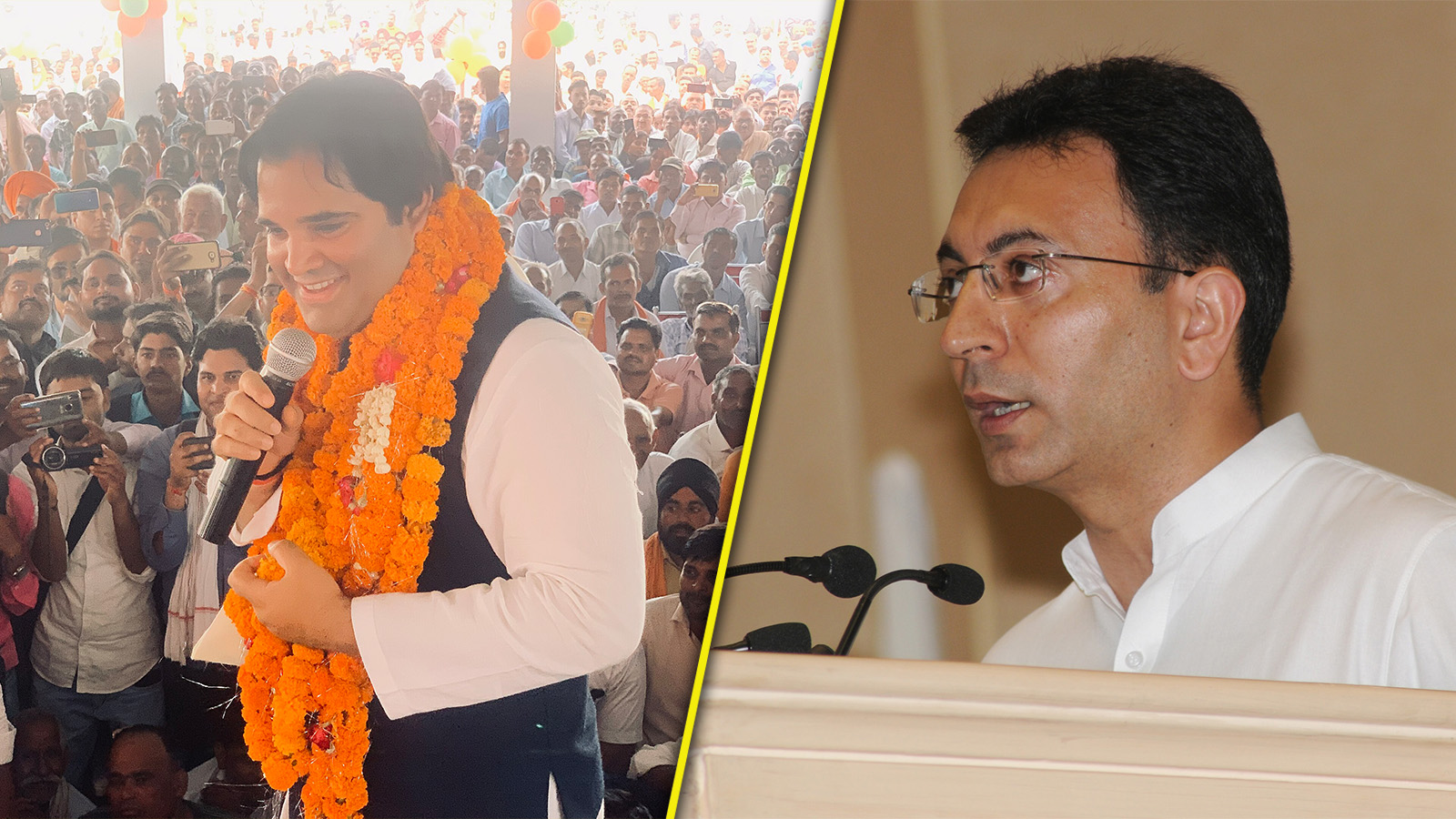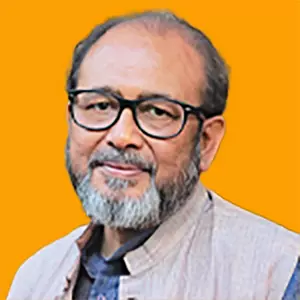
- Home
- India
- World
- Premium
- THE FEDERAL SPECIAL
- Analysis
- States
- Perspective
- Videos
- Sports
- Education
- Entertainment
- Elections
- Features
- Health
- Business
- Series
- In memoriam: Sheikh Mujibur Rahman
- Bishnoi's Men
- NEET TANGLE
- Economy Series
- Earth Day
- Kashmir’s Frozen Turbulence
- India@75
- The legend of Ramjanmabhoomi
- Liberalisation@30
- How to tame a dragon
- Celebrating biodiversity
- Farm Matters
- 50 days of solitude
- Bringing Migrants Home
- Budget 2020
- Jharkhand Votes
- The Federal Investigates
- The Federal Impact
- Vanishing Sand
- Gandhi @ 150
- Andhra Today
- Field report
- Operation Gulmarg
- Pandemic @1 Mn in India
- The Federal Year-End
- The Zero Year
- Science
- Brand studio
- Newsletter
- Elections 2024
- Events
- Home
- IndiaIndia
- World
- Analysis
- StatesStates
- PerspectivePerspective
- VideosVideos
- Sports
- Education
- Entertainment
- ElectionsElections
- Features
- Health
- BusinessBusiness
- Premium
- Loading...
Premium - Events

Replacing Varun Gandhi with Jitin Prasada in Pilibhit shows power of political scions; dynasty politics comes with advantages that Modi is fully aware of
The BJP dropped Varun Gandhi as its candidate from Pilibhit, Uttar Pradesh, and replaced him with Jitin Prasada. Interestingly, both are members of political families and were preceded in politics by a family member.
Varun joined the BJP along with mother, Maneka Gandhi, in 2004.
The ‘other Gandhis’
Maneka first entered the political fray in 1984 from Amethi as the ‘wronged Gandhi daughter-in-law’ backed by almost the entire Opposition.
She remained an Independent in that election and several subsequent ones. Even though all non-Congress parties except a few backed her, her primary political identity remained that of the ‘other Gandhi’.
By 2004, when she joined the BJP with her son, Maneka had already spent six years (beginning 1998) with the National Democratic Alliance (NDA) as a Union minister. Even within the BJP, the mother-son duo took their position on the strength of being heirs of Sanjay Gandhi.
Jitin’s journey
Before Varun was dropped as candidate, Pilibhit was represented by either of the two Gandhis for 28 years since 1996 over seven parliamentary elections – in fact, the constituency was seen and treated like a family citadel.
Jitin joined the BJP in June 2021 after more than two decades in the Congress party, in the course of which he was member of Lok Sabha and Union minister for 10 years from 2004 to 2014. He was preceded by his father, Jitendra Prasada, in politics and in the party.
Prasada Junior’s initiation into the Congress followed the death of his father, Jitendra Prasada, in January 2001. In 2004, he was fielded from the Shahjahanpur constituency, which his father won in 1971, 1980, 1984, and 1999.
After his mother Kanta Prasada was defeated in the by-election held in May 2001 to fill the vacancy due to the death of her husband, the political family baton was categorically passed to the son, Jitin, who defeated his nearest Samajwadi Party rival by more than 80,000. Till Jitin Prasada’s defeat to the BJP candidate in 2014, the constituency was also considered a Prasada-family bastion.
Is BJP guilty of dynasty politics too?
Swapping one political heir with another in Pilibhit is not the only instance of the BJP’s move to choose members of political families – Sushma Swaraj’s daughter, Bansuri Swaraj, is the most conspicuous one because she has been fielded from New Delhi.
Despite promoting leaders from political families, the BJP, especially Prime Minister Narendra Modi, flags parivarvaad, or dynasticism, as one of his principal lines of attack on the Congress and regional parties, most of which, barring exceptions like the JD(U), have a family as political pivot.
Is this contradiction explainable, or is it plain duplicity?
Political ancestors, heir apparent
Before looking for explanations or dubbing it as hypocritical, it is necessary to understand the extent to which dynasticism is prevalent in the BJP. In the present council of ministers of the Union government, there are at least four members who were preceded in politics by at least one family member. Of them, at least two have the tag of royalty – Jyotiraditya Scinda and Rao Inderjit Singh.
Besides his father Madhavrao, Scindia was also preceded in politics by grandmother Vijaya Raje and aunts Vasundhara Raje and Yashodhara. Inderjit Singh, on the other hand, was preceded by his father and Union minister Birender Singh. The family’s lineage can be traced right up to Rao Tula Ram, the Ahir chieftain of the tracts around contemporary Rewari, Haryana.
The fathers of two other Union ministers were active in politics and held offices. The ministers are Piyush Goyal, whose father Ved Prakash Goyal was the longtime treasurer of the BJP, and Anurag Thakur, whose father Prem Kumar Dhumal was the Chief Minister of Himachal Pradesh.
There are two other union ministers whose sons are either in politics or hold public office – Rajnath Singh’s son, Pankaj, is a Uttar Pradesh legislator and office-bearer in the state party unit. Home Minister Amit Shah’s son, Jay, is the secretary of the Board of Cricket Control in India.
Not unique to India
Dynastism in Indian politics is not a new phenomenon, given the fact that the children of many nationalists followed in their footsteps – Jawaharlal Nehru being one of the most well-known of them. Likewise, after Independence, and when princely states merged into India, scions of several royal families, like the Scindias, entered politics.
Political scientists have for long studied this trend, which is not uniquely Indian. Political dynasties have been in existence in several democracies in the developed world. Considerable understanding of Indian political dynasties has evolved from the works of academics like Patrick French, Kanchal Chandra and Romain Carlevan.
The study of French and Chandra showed that roughly 30 per cent of all MPs in the 15th Lok Sabha (2009-14) had a family member elected before them. Carlevan, who studied northern India, found that 33.6 per cent of all MPs elected from this region in 2009-2014 were political heirs.
The studies showed that almost one third of the lawmakers at the Centre were those who had ‘inherited’ their positions although they went through the electoral process of getting elected.
Why Modi’s charge doesn’t hold water
But as is well known, dynastic candidates are always at an advantage over their rivals within the party and while in contestation against those of other parties too, for a variety of reasons: Ease of securing party ticket, getting the choicest constituency, advantage of being known before entering the fray, and a pre-existing network of cadre for electioneering and resources.
For Modi, who perpetually conveys that the Congress is the prime cause for thriving dynasticism, a finding of Carlevan’s research is revelatory. Although the Congress lost over 80 per cent of its seats in Lok Sabha in 2014, the proportion of political heirs in Lok Sabha declined by less than 10 points – from 33.6 per cent in the 15th Lok Sabha to 27 per cent in the 16th one.
This clearly underscores that in India, political dynasticism and dynasties are resilient and that barring a handful, all parties freely induct dynasts, ‘homegrown’ as well as from other parties.
RSS, too
Significantly, according to Carlevan’s analysis of backgrounds and political affiliation of members of the 16th Lok Sabha, out of all the political heirs, the BJP accounted for 44.4 per cent. Even within the RSS, its chief Mohan Bhagwat comes under the category of 'dynast'. His father, Madhukar Rao Bhagwat, was an active functionary in the RSS and, in fact, was one of the early mentors of Modi.
MG Vaidya, father of Manmohan Vaidya, an RSS Sah Sarkaryavah (joint general secretary), had been a senior functionary, Baudhik Pramukh, in the late 1990s.
Modi’s definition of dynasticism
In February, while replying to the debate in Lok Sabha on the Motion to thank the President for her Address at the joint sitting of the two Houses, Modi delineated what he considered to be dynasticism.
He said that there were two kinds of parties – one which were led by leaders belonging to one family, and the other lot comprised those parties in which “more than one person from a family” are present after having “made progress in politics on their own merit and not due to family backing”.
Explaining these parties, Modi said, “We talk about dynasticism when parties are run by a family, which gives priority to the people of the family. All the decisions of the party are taken by the family members only.”
Young people in politics
If there was any doubt that Modi was not condemning several members of the same family being in politics, he said categorically, “It is not bad for 10 people from a family to enter a party post or join politics. We want young people to come.”
Anyone would know that for young people wanting to enter politics, it is greatly advantageous if an elder person from the family is already in an influential position in the party.
Modi’s explanation was aimed to paint only the Congress and other regional parties as dynastic while giving the proverbial clean chit to parties like the BJP, the JD(U) and other allies.
Dynastic leadership vs dynastic membership
Carlevan says that while Modi’s formulation is not entirely untrue – that people from the same family can become self-made political leaders without the help of their family elders or siblings, but they exist in “vanishingly small numbers.”
His study, in fact, found that less than 4 per cent of politicians made it on their own and without seeking any help from family members in the party.
Modi’s distinction between ‘dynastic leadership’ and ‘dynastic membership’ parties is actually meaningless because parties like the BJP which do not use the principle of succession to determine organisational leadership, still promote one political heir over another – even in Pilibhit at the moment, for instance. The seat has again gone to an ‘outsider’ and a ‘dynast’, very much like the previous representative – Varun.
Trivial fault-finding
Modi’s explanation was little but trivial fault-finding whereas the truth, as underscored by various studies, is that the BJP has promoted a large number of dynastic candidates.
The BJP has, in any case, done away with democratic functioning. On most crucial issues there is hardly any deliberation.
For a party in the grips of the High Command culture and having had almost as many dynasts as the Congress since the late 1990s, Modi labeling the Congress and other regional opposition parties as dynastic is an instance of the pot calling the kettle black.
(The Federal seeks to present views and opinions from all sides of the spectrum. The information, ideas or opinions in the articles are of the author and do not necessarily reflect the views of The Federal.)


